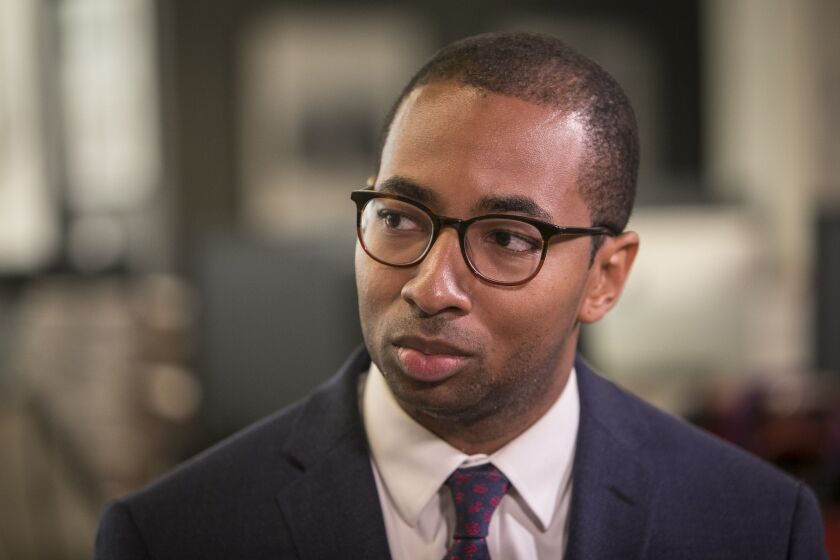Gov. J.B. Pritzker is pushing state lawmakers to clamp down on regulations for utility companies in the wake of the bombshell federal bribery case leveled against ComEd that implicated powerful Illinois House Speaker Michael Madigan.
Declaring that utilities “can no longer write the state’s energy policies behind closed doors,” Pritzker’s office issued a set of proposals Friday that include getting rid of the state’s formula rate system, banning utilities from making charitable contributions and requiring elected officials to report any relatives who work for a regulated utility company in their ethics filings.
“The public rightfully questions whether any new energy laws might be inevitably tainted by the political power of utility companies that have used their excessive clout and political contributions to corrupt the political process for their own profits, and whose practices have led to criminal investigations and charges,” Pritzker’s office said. “Their days of outsized influence on the process are ending.”
Formula rates went into effect in Illinois in 2012 to help fund a now-completed grid modernization plan, and now only help utilities “increase their profits by loading up the rate base with little cost control,” according to Pritzker’s office, resulting in a 29% increase in delivery costs for ComEd customers.
“We’re going to make the utilities come back before the Illinois Commerce Commission like they used to, to make their case to those commissioners why their rates change year over year,” Deputy Gov. Christian Mitchell said.
Pritzker’s team also wants to block utilities from recovering charitable contributions to foundations, golf outings, and other events, “often to curry favor with elected officials” with ratepayer money.
And among other 10 other “transparency and ethics” requirements, the Democratic governor wants utilities to submit to yearly independent audits of their infrastructure expenditures.
Mitchell said they’re putting the proposals to a working group next week in hopes of crafting a bill for the veto session in Springfield this fall, but acknowledged it would be difficult for potential legislation to come to fruition this year.
And the deputy governor stopped short of saying the proposed utility crackdown would prevent schemes like the one federal prosecutors alleged last month against ComEd.
“When people want to misbehave, they tend to find a way, but this makes it significantly harder to do so,” Mitchell said. “And it lets people know that we’re going to be focused on this in a real way going forward.”
ComEd has been charged with bribery, accused of sending $1.3 million to Madigan’s associates for doing little or no work for the utility while ComEd hoped to land Madigan’s support for favorable legislation in Springfield worth more than $150 million to the utility.
The company is expected to pay a $200 million fine as part of a deferred-prosecution agreement with the U.S. attorney’s office.
A ComEd spokeswoman said the utility is reviewing Pritzker’s proposals but “wholeheartedly agrees with the governor that the need for comprehensive energy reform has never been greater; we share the state’s commitment to clean energy, sustainability, utility affordability and transparency.”
“ComEd has already moved aggressively to implement comprehensive ethics reforms to ensure that the unacceptable conduct outlined in the agreement with the U.S. Attorney’s Office never happens again. However, we recognize the importance and challenge of rebuilding the trust of the public, regulators and elected officials, and look forward to working with these stakeholders to achieve the state’s ambitious clean energy goals,” ComEd said.
Madigan has not been charged with a crime and has denied any wrongdoing.
A spokesman for the longtime speaker declined to comment on the proposals but noted Madigan has said he’ll support the recommendations of the General Assembly’s Joint Commission on Ethics and Lobbying Reform. That group had been set to release a report in March before the coronavirus pandemic gripped the state.
Pritzker’s utility ethics proposals are among a broader set of energy priorities announced by his office, aiming to bolster a “clean and renewable Illinois economy.”
Those include putting the state on a path to 100% clean energy by 2050, and putting 750,000 electric cars on Illinois roads over the next 10 years — making it “the best state in the country for electric vehicle producers and consumers.”







